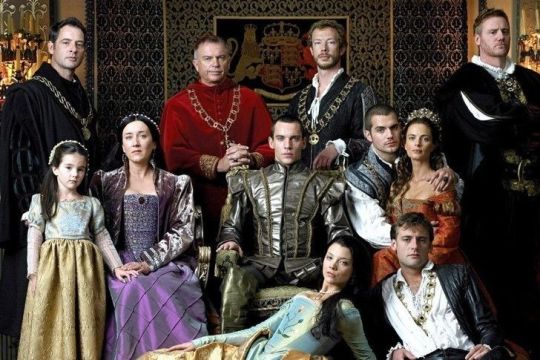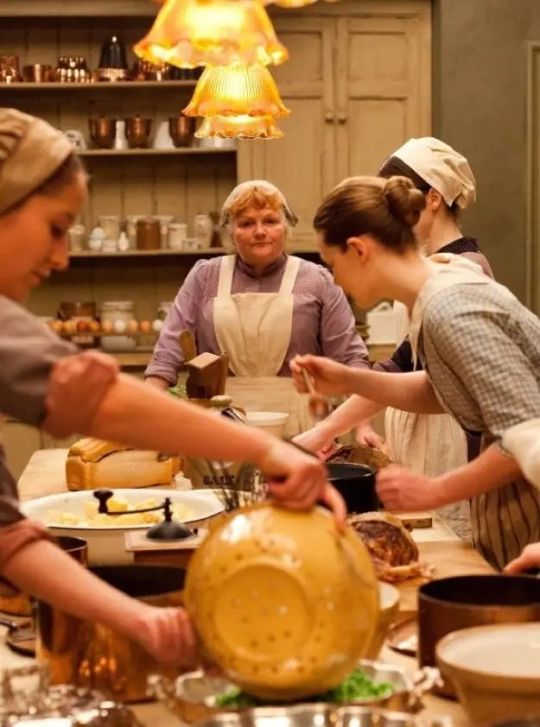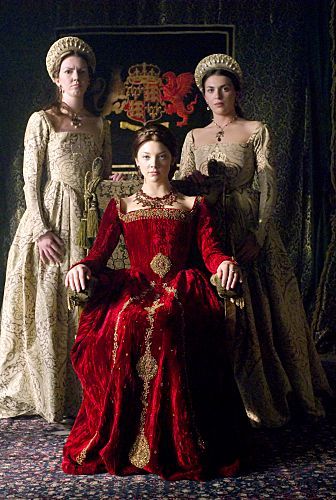Cat | 26 | Black | She/Her | Reader | Writerling | Disaster Child
Don't wanna be here? Send us removal request.
Text
Mel’s Big Fantasy Place-Name Reference
So I’ve been doing lots of D&D world-building lately and I’ve kind of been putting together lists of words to help inspire new fantasy place names. I figured I’d share. These are helpful for naming towns, regions, landforms, roads, shops, and they’re also probably useful for coming up with surnames. This is LONG. There’s plenty more under the cut including a huge list of “fantasy sounding” word-parts. Enjoy!
Towns & Kingdoms
town, borough, city, hamlet, parish, township, village, villa, domain
kingdom, empire, nation, country, county, city-state, state, province, dominion
Town Name End Words (English flavored)
-ton, -ston, -caster, -dale, -den, -field, -gate, -glen, -ham, -holm, -hurst, -bar, -boro, -by, -cross, -kirk, -meade, -moore, -ville, -wich, -bee, -burg, -cester, -don, -lea, -mer, -rose, -wall, -worth, -berg, -burgh, -chase, -ly, -lin, -mor, -mere, -pool. -port, -stead, -stow, -strath, -side, -way, -berry, -bury, -chester, -haven, -mar, -mont, -ton, -wick, -meet, -heim, -hold, -hall, -point
Buildings & Places
castle, fort, palace, fortress, garrison, lodge, estate, hold, stronghold, tower, watchtower, palace, spire, citadel, bastion, court, manor, house
altar, chapel, abbey, shrine, temple, monastery, cathedral, sanctum, crypt, catacomb, tomb
orchard, arbor, vineyard, farm, farmstead, shire, garden, ranch
plaza, district, quarter, market, courtyard, inn, stables, tavern, blacksmith, forge, mine, mill, quarry, gallows, apothecary, college, bakery, clothier, library, guild house, bath house, pleasure house, brothel, jail, prison, dungeon, cellar, basement, attic, sewer, cistern
lookout, post, tradepost, camp, outpost, hovel, hideaway, lair, nook, watch, roost, respite, retreat, hostel, holdout, redoubt, perch, refuge, haven, alcove, haunt, knell, enclave, station, caravan, exchange, conclave
port, bridge, ferry, harbor, landing, jetty, wharf, berth, footbridge, dam, beacon, lighthouse, marina, dockyard, shipyard
road, street, way, row, lane, trail, corner, crossing, gate, junction, waygate, end, wall, crossroads, barrier, bulwark, blockade, pavilion, avenue, promenade, alley, fork, route
Time & Direction
North, South, East, West, up, down, side, rise, fall, over, under
Winter, Spring, Summer, Autumn, solstice, equanox, vernal, ever, never
dusk, dawn, dawnrise, morning, night, nightfall, evening, sundown, sunbreak, sunset
lunar, solar, sun, moon, star, eclipse
Geographical Terms
Cave, cavern, cenote, precipice, crevasse, crater, maar, chasm, ravine, trench, rift, pit
Cliff, bluff, crag, scarp, outcrop, stack, tor, falls, run, eyrie, aerie
Hill, mountain, volcano, knoll, hillock, downs, barrow, plateau, mesa, butte, pike, peak, mount, summit, horn, knob, pass, ridge, terrace, gap, point, rise, rim, range, view, vista, canyon, hogback, ledge, stair, descent
Valley, gulch, gully, vale, dale, dell, glen, hollow, grotto, gorge, bottoms, basin, knoll, combe
Meadow, grassland, field, pasture, steppe, veld, sward, lea, mead, fell, moor, moorland, heath, croft, paddock, boondock, prairie, acre, strath, heights, mount, belt
Woodlands, woods, forest, bush, bower, arbor, grove, weald, timberland, thicket, bosk, copse, coppice, underbrush, hinterland, park, jungle, rainforest, wilds, frontier, outskirts
Desert, dunes, playa, arroyo, chaparral, karst, salt flats, salt pan, oasis, spring, seep, tar pit, hot springs, fissure, steam vent, geyser, waste, wasteland, badland, brushland, dustbowl, scrubland
Ocean, sea, lake, pond, spring, tarn, mere, sluice, pool, coast, gulf, bay
Lagoon, cay, key, reef, atoll, shoal, tideland, tide flat, swale, cove, sandspit, strand, beach
Snowdrift, snowbank, permafrost, floe, hoar, rime, tundra, fjord, glacier, iceberg
River, stream, creek, brook, tributary, watersmeet, headwater, ford, levee, delta, estuary, firth, strait, narrows, channel, eddy, inlet, rapids, mouth, falls
Wetland, marsh, bog, fen, moor, bayou, glade, swamp, banks, span, wash, march, shallows, mire, morass, quag, quagmire, everglade, slough, lowland, sump, reach
Island, isle, peninsula, isthmus, bight, headland, promontory, cape, pointe, cape
More under the cut including: Color words, Animal/Monster related words, Rocks/Metals/Gems list, Foliage, People groups/types, Weather/Environment/ Elemental words, Man-made Items, Body Parts, Mechanical sounding words, a huge list of both pleasant and unpleasant Atmospheric Descriptors, and a huge list of Fantasy Word-parts.
Keep reading
10K notes
·
View notes
Text
practice makes perfect, but writing the same thing every day doesn’t always count.
let me clarify this: if you really want to improve your writing, focus on the things you want to improve. take that out of your writing and only do that. for me, i’ve always been bad at dialogue. so i’ve started writing in the form of a play script.
an example of something bad you probably unconcsiously do: i hate worldbuilding. very much. i used to just put it off, focus on character interactions instead. this is the issue: i wrote a lot, but it was always the same thing.
there came a point where i just couldn’t keep going if i didn’t know important parts of my world. so lately i’ve been working on magic systems, and i’m actually starting to like them. next step is the government. i’m going to keep going from there.
tldr: stop putting off writing the parts you’re not good at, and start focusing on improving that aspect of your writing specifically, and things will start to improve.
526 notes
·
View notes
Text
writeblrs: reblog this and tell me something you’re looking forward to writing in your wip!
309 notes
·
View notes
Text
Fantasy Guide to Royal Households and How they Work

When I say Households, I mean the entourage that follows around the royal family. The household went everywhere with them to care for their needs from the people who would empty their chamber pots to their noble companions. Most royal households are basically the same as noble ones, only on grander scale. Every royal had a household and an entourage as well as every noble at court.
Palace Personnel ~ The Commons

The commons were an intregal part of every household. They made up perhaps 80% of the work force. Royal courts were often on the road and never spent more than a few months at every palace. The court was constantly moving. Some positions were not permanent, meaning certain servants did not travel with the court because they were employed at the palace only. They would be paid by the Monarch's paymaster.
Scullion: The scullion was a relatively easy position to fill so they were often changed as the court went from palace to palace. They would be responsible for scrubbing and cleaning the servants quarters and the kitchens. They would scrub floors with lye, scour pots with sand, sweep put the fireplace and clean up after the other servants. They were the first to rise in a castle and tasked to light all the fires in the kitchens. Scullions would just be employed to the palace and serve a multitude of chambers
Laundress: The laundress was responsible for the cleaning of anything made of fabric in the household. Since they are handling unmentionables, they knew what happened behind closed bedchamber doors. They knew when the King visited the Queen or hadn't, they knew when marriages were consummated or not and they knew when the Queen and royal women were not pregnant. They often sold secrets to pad their pockets. Laundresses might be permanent staff but sometimes not.
Minstrels: The minstrel was a commoner hired to play an instrument or sing for the entertainment of the royal. A royal might staff a few at a time but they would always have one on hand. The minstrel would likely come with their masters as they travelled. The minstrel might serve the main royal household but a royal might retain their own.
Cook: The cook was one of the most important servants in the household. They would have the task of overseeing the running of the kitchens and keeping supplies in order. They would likely be on call at all times. Henry VIII's cook was often woken in the night because his royal master wanted a midnight snack. The cook was a valued member of the household and would have been highly sought after if they were a very skilled cook. They would have travelled with the joint. Cooks were apart of the greater royal household but often royals retained private cooks for their own use.
Maidservant: The maidservant cleans the castle. She would sweep the floors, scrub them, empty the chamberpots, get rid of the ashes from the fire and ready the fire for later. She would make up the bed or strip it for the laundresses. She would wash anything that needed washing including furniture and ornaments. She was likely not a travelling servant and would be strictly employed at a single palace.
Jester: The jester was the hired entertainer. Working under the master of revels, the jester had the daunting task of making the monarch and their family laugh. They would tell jokes, tell stories, cause havoc in the court for laughs and lighten the mood. The most successful jester of all time was Will Somers, jester to Henry VIII. Will broke bad news to the infamously bad tempered monarch and got away with things that would have sent others to the block. Will survived most of Henry's reign, his head intact. Jesters would be apart of the main household though each royal might have one of their own.
Positions within the Royal Household ~ Noble


Nobility were always welcomed at court. They eat at court, slept at court and were cared for by the monarch. Some nobles had to sing for their supper and most were hired as royal servants. They weren't exactly scrubbing floors and would be paid handsomely with land that would generate wealth for them
The Steward/Seneschal: This person was the head of the royal's staff. They would have the task of running the lands and servants their master or mistress. The steward served as a backup and assistant in all the tasks even representing their master or mistress when they were unavailable. Would be a high ranking noble. Each royal household would have them.
Treasurer of the Household: The treasurer was the accountant and pay master. They would be in charge of ensuring debts were settled, wages were paid and the household was running within the budget. This was a coveted position because it gave the treasurer insight into the financial situations of the royals. Such info was wroth its weight in gold. Each royal would have one.
Usher: The Gentleman Usher would be in charge of escorting guests into the royal chambers and into the royal presence. They would act as a go between their royal master/mistress and the guest often going back and forth with messages. It was just as coveted as the position of chamberlain but with less responsibilities.
Master of Horse: The Master of Horse was in charge of seeing to the horses of their master. They would oversee the grooms or the stableboy/hands who were employed at the stables to actually care for the horses. The master of horse would ensure that the stables were in order and the horses were up to parr in order to bear royalty across the kingdom. Each royal would have one but there would a main one who acted as overseer.
Master of the Wardrobe/Mistress of the Robes: These are the nobility who are employed to look after the clothes of the royal they serve. This would mainly involve a managerial position, overseeing the inventory of the royal wardrobe (a warehouse like building that housed the clothing) and placing orders for new clothes. It was a tidy job that rarely involved getting the hands dirty. Each royal would have one.
Chamberlain/Valet: The chamberlain is employed to look after the Lord's bedchamber. This was the most sought out position as they effectively were the gateway into the royal presence. Their main task was making sure their boss was comfortable and happy. Could be a well born commoner or a noble. Each royal would have one.
The Page: All royal households had pages. They would be a young noble boy about seven years old sent to their royal master. He would be in charge of tidying up after the lord, carrying messages to other servants and occupants of the castle and serving him at meals. Unlike others on the list, the page would not be paid. His experience was his payment as he would learn the running of a court and how to be courtier. Each royal would have one.
Squires: Squires were like pages though they only served the men. They would accompany their royal master to battle, look after his armour and mail, ensure that his lord's horse was saddled, caring for their master's weapons. The squire would always be a young nobleman on the cusp of becoming a knight.
Governess: The governess is a noblewoman woman employed to oversee the Monarch's children's household. She would be the first teacher a royal child would have and would oversee the nursemaids who would have care of the physical person of the child. She would be appointed when the child was four or five. Notable governesses include Katherine Swynford (wife of John of Gaunt and mother to the Beaufort line), Margaret Pole (wife of Tudor Loyal Sir Richard Pole, sister of the last York heir Edward of Warwick, daughter of George Duke of Clarence and niece to King Edward VI and Richard III), Kat Ashley, Margaret Bryan, Madame de Maintenon and Baroness Lehzen. Most unmarried Princesses retained their governesses while Princes generally outgrew their governesses after they were breeched.
Gentlemen of the Privy Chamber: They were the male companions of a King or Prince, sort of like ladies in waiting but manly. They would accompany the King or Prince everywhere they would go and shared duties with Groom of the Stool (royal toilet paper dispenser) and the Chief Gentleman of the Chamber (overseeing the staff and maintaining the chamber). They would help their master get ready, serve him at the table and organize hunting and games to keep him entertained. Gentlemen and companions where often chosen for their connections as well as their master's own opinion. Henry VIII's gentlemen included: Sir William Compton (ward of Henry VII and heir to rich lands), Sir Henry Norris (the grandson of William Norris who fought with Henry's father at Stroke and a relation to the Yorkists Lovells), Sir Anthony Denny (son of Sir Edmund Denny Baron of the Exchequer) Sir Michael Stanhope (brother in law to Edward Seymour, Duke of Somerset), Charles Brandon (ward of Henry VII and son of Tudor Loyalists)
Ladies in Waiting and Maids in Waiting or Maids of Honour: These are the female attendants to the Queen or Princess. Ladies in Waiting were married while the Maids were unmarried. They would have to attend their mistress wherever she went, help her get ready, keep her chambers in order, write letters for the Queen and maintaining her honour. They were chosen for their connections. Using Katherine of Aragon as an example, her Ladies in Waiting included: Maria de Salinas (daughter of Juan Sancriz de Salinas secretary to Isabella, Princess of Portugal and a Spanish courtier in the service to Katherine's parents, wife of Baron Willoughby de Ersby), Elizabeth Howard (the daughter of Thomas Howard, 2nd Duke of Norfolk, sister to Thomas Howard, 3rd Duke of Norfolk and wife to Thomas Boleyn, ambassador to France), Anne Hastings (daughter of William Hastings, 1st Baron Hastings, wife to George Talbot, Earl of Shrewsbury and Lord Steward.), Agnes Tilney (wife to Thomas Howard, Earl of and 2nd Duke of Norfolk.), Elizabeth Scrope (wife of John de Vere, Earl of Oxford, a loyal Tudor lord), Margaret Scrope (wife of Sir Edmund de la Pole, Earl of Suffolk cousin to the King), Anne Stafford (sister of the Duke of Buckingham, married Sir George Hastings, Earl of Huntington and daughter of Henry Stafford, 2nd Duke of Buckingham (cousin to the King) and Lady Katherine Woodville (sister of King Henry VIII's grandmother and his great aunt by her marriage), Elizabeth Stafford (sister to Anne Stafford wife Robert Radcliffe, Lord Fitzwalter and Earl of Sussex around). Their connections are what got them their places and you can see why they were chosen.
Accommodation

Accommodation can be a difficult thing to sort both as a writer and a steward. You might have a palace of 200+ bedchambers in which you must house a staff of 500-/+, a varying amount of nobles, the royal family (of a varying amount) and their own households. When assigning rooms it is best to think of a Russian nesting doll. Start from the inside and work your way to the outside.
The best rooms go to the monarch, their consort and their children/siblings/parent(s). These chambers would include the bedroom, a drawing room/ common area, a privy, a closet (a small chamber that can be used for prayer or work). They would be furnished with the best cloth, the best candles and whatever furniture brought by the resident since most royal courts travelled from palace to palace. They will also have chambers for their personal servants such as ladies in waiting and grooms.
The second best set of rooms would go to the highest ranking nobles/people in the court. These rooms would be less fancy and a little smaller. These would be given to from titled nobility descending from those of Ducal rank (Dukes/Duchesses) or even members of the council such as Thomas Cromwell in Tudor times.
The next set would be considerably smaller, perhaps minus a closet or a drawing room. Given to lower nobility.
The next level of chambers would be smaller perhaps only the bedroom and a common area given to minor nobles.
The last set of rooms would be small and only hold enough room for a bedroom. Servants would have to sleep on the ground on pallets beside their masters.
Any other guests at court would have to stay at off-site locations around the palace in the city. Some nobles at houses around major palaces just in case they arrived late or were kicked out of court.
18K notes
·
View notes
Text
I feel like there needs to be an author alignment chart
Chaotic Evil is writing on your phone in the dark with no glasses on (me)
41K notes
·
View notes
Text
A list of cliche things I’ve learned from writing the first draft of my novel:
- Don’t expect perfection. I spent about six months writing and rewriting the first chapter so I could make it ‘perfect.’ Eventually, I moved on. The first chapter didn’t even matter, because now I have to rewrite it. I learned more from finishing the book than wasting time on trying to perfect the hook sentence.
- The novel will go through changes, even as you write. So, I expected my story to be about people getting lost in the woods under mysterious circumstances. I had a better idea halfway through. It was more dynamic and it impacted my characters on a deeper level. So, what I thought was going to be the plot of my novel, became just a plot thread. It’s okay, be loose. You’re probably going to rewrite the whole thing anyway.
- Dedication is key, but don’t burn yourself out. I wrote every day, with the goal of writing 500 words a day on average over a month. Rather than setting a daily goal, I chose to average out my goal, just in case life got in the way. I found it super helpful considering I was working and going through school.
- Love thy characters. You’re going to be spending a lot of time with them. Make them interesting, make them flawed, make them real. Love them… But love their pain more.
- Finishing may not feel so great. I spent months with these characters. I helped them along their journey, and writing gave me a sense of purpose. It was something I looked forward to every day, the only thing I could think about. One day, it was over. I didn’t know what to do with myself. But there is a silver lining…
- It’s not over. Writing is rewriting. I finally got to read my novel, after letting it sit for a few weeks. It’s terrible and I love it. All I could think about is rewriting it. Today is the day.
Good luck on your writing journey.
4K notes
·
View notes
Text

The bare bones of solid plot—plug your points and get writing!
(Picture Credit: Fiction Alchemy)
2K notes
·
View notes
Text
My first draft is not garbage. My first draft is more like a murky river, and I’m a grizzly old prospector wading in and panning for gold. Yeah, there’s a lot of mud and dirt and rocks, but if I take my time, there’s also some valuable gems and nuggets hidden in there that make it all worth it.
There’s gold in them there drafts.
2K notes
·
View notes
Text
You’re telling me, im suppose to come up with a fully formed concept before I start writing? Idk man sounds fake
354 notes
·
View notes
Text
When the scene isn’t turning out like it’s supposed to but at least you’re writing

44K notes
·
View notes
Text
i either want to live in a tiny cottage covered with flowers and warm colors or a giant gothic castle with huge libraries and secret passages and no i will not settle for anything in between
25K notes
·
View notes
Text
I’m kind of tired of male characters seeming to be good and kind and helpful and benevolent and then it turns out they’re horrible irredeemable assholes. Like, it’s not subversive anymore, it’s to the point where if a male character shows up and is like “hello I am very nice and helpful and I smile a lot” I’m just waiting for the moment he turns out to be hiding his horrible dark side so you know the abrasive make character was really the good one all along (in comparison).
You know what would actually surprise me nowadays? A male character showing up being super nice and then by the end he… still is??? Like, turns out being outwardly kind and polite isn’t a smokescreen but something he does because he’s genuinely kind and polite. Like, shockingly, men like that can and do exist. I don’t know, I’m just tired. I want to stop being told to distrust kindness in men, and that the rude ones are somehow better.
3K notes
·
View notes
Text
more on writing muslim characters from a hijabi muslim girl
- hijabis get really excited over pretty scarves - they also like to collect pins and brooches - we get asked a lot of questions and it can be annoying or it can be amusing, just depends on our mood and personality and how the question is phrased - common questions include: - “not even water?” (referring to fasting) - hijabis hear a lot of “do you sleep in that?” (we don’t) and “where is your hair?” (in a bun or a braid, usually) - “is it mooze-slim or mozzlem?” (the answer is neither, it’s muslim, with a soft s and accent on the first syllable) - “ee-slam or iz-lamb?” (it’s iss-laam, accent on the first syllable) - “hee-job?” (heh-jahb, accent on the second syllable)
- “kor-an?” (no. quran. say it like koor-annn, accent on the second syllable) - people tend to mess up our names really badly and you just get a sigh and a resigned nod or an awkward smile, maybe a nickname instead - long hair is easy to hide, short hair is harder to wrap up - hijab isn’t just covering hair, it’s also showing as little skin as possible with the exception of face, hands, and feet, and not wearing tight/sheer clothing - that applies to men too, people just don’t like to mention it ( i wonder why) - henna/mehendi isn’t just for special occasions, you’ll see people wearing it for fun - henna/mehendi isn’t just for muslims, either, it’s not a religious thing - henna/mehendi is not just for women, men also wear it, especially on their weddings - there are big mehendi parties in the couple of nights before eid where people (usually just women and kids) gather and do each other’s mehendi, usually just hands and feet - five daily prayers - most muslim kids can stutter through a couple verses of quran in the original arabic text by the age of seven or eight, it does not matter where they live or where they’re from or what language they speak natively - muslim families tend to have multiple copies of the quran - there are no “versions” of the quran, there has only ever been one. all muslims follow the exact same book - muslims have no concept of taking God’s name in vain, we call on God at every little inconvenience - don’t use islamic phrases if you don’t know what they mean or how to use them. we use them often, inside and outside of religious settings. in islam, it is encouraged to mention God often and we say these things very casually, but we take them very seriously - Allahu Akbar means “God is Greatest” (often said when something shocks or surprises us, or if we’re scared or daunted, or when something amazing happens, whether it be good or bad; it’s like saying “oh my god”) - Subhan Allah means “Glory be to God” (i say subhan Allah at the sky, at babies, at trees, whatever strikes me as pleasant, especially if it’s in nature) - Bismillah means “in the name of God” and it’s just something you say before you start something like eating or doing your homework - In Shaa Allah means “if God wills” (example: you’ll be famous, in shaa Allah) (it’s a reminder that the future is in God’s hands, so be humble and be hopeful)
- Astaghfirullah means “i seek forgiveness from Allah” and it’s like “god forgive me” - Alhamdulillah means “all thanks and praise belong to God” and it’s just a little bit more serious than saying “thank god” (example: i passed my exams, alhamdulillah; i made it home okay, alhamdulillah) - when i say we use them casually, i really mean it - teacher forgot to assign homework? Alhamdulillah - our version of “amen” is “ameen” - muslims greet each other with “assalamu alaikum” which just means “peace be on you” and it’s like saying hi - the proper response is “walaikum assalam” which means “and on you be peace” and it’s like saying “you too”
222K notes
·
View notes
Text
I regret not dancing with Jacob Yoshino the entire ride home. I agonize over it until I fall asleep. Little Olivia shouts, “why didn’t you do it,” over and over in my dreams. 100 years from now, when I lay dying in some moonbase medical bay surrounded by androids and the holograms of my closest friends and family, it’ll be the last thing I think about before they jettison my lifeless body into space.
— From Tripping
0 notes








